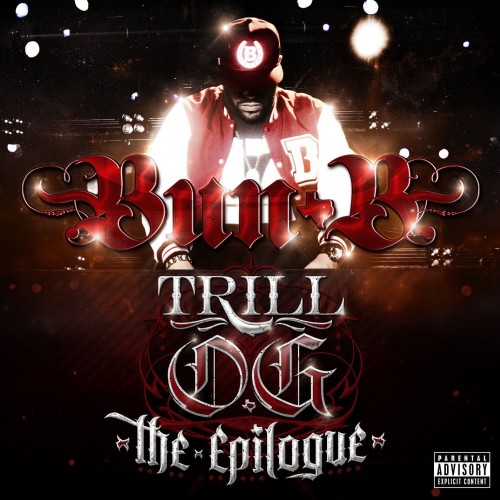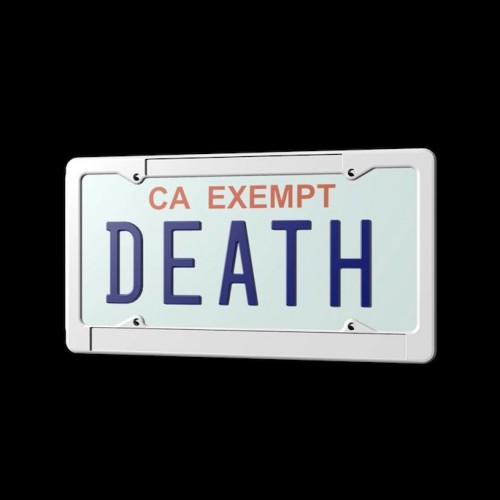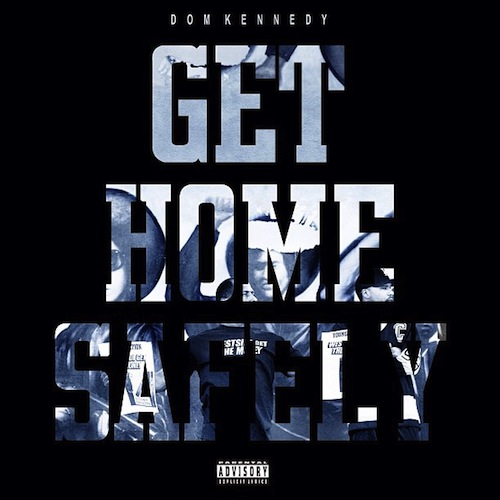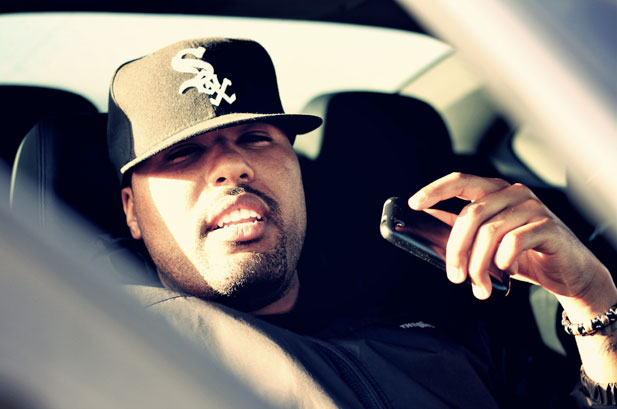It seems like everyone’s finally calmed down over Kendrick Lamar’s cute bars on Big Sean outtake ‘Control’. Though at least one of the targets in his adorable hit list, Pusha T, probably never even broke a sweat. Hell, the legendary coke rapper heard that verse and had himself a good chortle before checking on his millions in the ceiling. Timing and timing alone saved the TDE leader (who features on ‘Nosetalgia’) from a verbal beatdown on My Name Is My Name, the Clipse hustler’s unparalleled solo album debut.
Indeed, Push knows how to murder an emcee, and he lays waste to his enemies in verse, bodying Canadian heartthrob Drake harder than his buddy Rob Ford did Pam McConnell, the unfortunate Toronto city councilwoman he floored. On ‘King Push’, the best hip-hop track of 2013, he presents a modus operandi that separates him from pretty much every major label rapper in the game today: "I rap, ngga, about trap, nggas / I don’t sing hooks." Just because he’s got the Kanye West cosign doesn’t mean he’s bowing and scraping for a chance at pop R&B radio, though the collabs with Chris Brown (‘Sweet Serenade’) and Kelly Rowland (‘Let Me Love You’) seem to contradict that.
Pusha T is nothing if not complicated. For someone so vitriolic toward fake gangsters, it’s confounding that he allowed Officer Rick Ross to guest on ‘Hold On,’ yet the Maybach Music mastermind comes through with his strongest, realest verse in years. Comparatively, 2 Chainz and, oh hey, Big Sean don’t fare very well on ‘Who I Am’ though Jeezy, née Young, reminds us with gusto that he’s one of the few that can hang.
Push wants you to believe he’s still in the dope game, that he doesn’t need rap, that rap needs him. ’Numbers On The Boards’ will make you a believer. It’s hard to determine whether Push has been storing these next level brilliant bars all these years or if he’s become such an adept lyricist that this is the work of a poet, street or otherwise, in his prime.
Bun B – Trill O.G. The Epilogue

In case the title didn’t happen to set off any alarms in your fractured skull, this fourth installment in the trilogy marks the surviving subterranean royal’s first proper Odds & Sods collection. Fans of Bun B’s gold-certified Trill and its two subsequent Rap-A-Lot follow-ups are preconditioned to dig what’s on offer here, especially with a pair of unearthed Pimp C vocals in tow. Big K.R.I.T.’s silk-worming production brings the funk on ‘Cake’, but the UGK spirit rises on ‘Don’t Play With Me’, even though in both instances the dearly departed emcee is relegated to the chorus, indicating that there’s probably little left of the legend to scrounge from the archives. Steve Below and Big E, alumni from the last go-round, get some more shine, albeit in the glaring absence of bigger names like Boi-1da, DJ Premier, and J.U.S.T.I.C.E. League. Then again, big names don’t guarantee big singles, with the dancehall vibe of ‘Fire’ disrupted by interrupted by Rick Ross’ motoric Maybach flow and 2 Chainz’s throwaways.
Death Grips – Government Plates

Out of the frying pan and into the washing machine, the nihilistic misanthropes / misanthropic nihilists of Outsider Hip-Hop return with snotty sleeves, punk sneers, and a general disregard for, well, everything. Which is to say, there’s absolutely nothing new about new Death Grips. Like its pink pricked predecessor, Government Plates isn’t making the band any bigger or harder. One minute, it’s the Mash Out Posse sexually assaulting Boards Of Canada; the next, a warbly subversive nursery rhyme for babies that weren’t hugged enough (‘Birds’). Vacillating between synth sample stutter (‘This Is Violence Now’) and browbeating goonery, there’s plenty of new intro music here for the backyard wrestlers of America. The consistency of discourtesy remains, and Death Grips appear endlessly amused by being so gosh darn anti-commercial. I remain thoroughly impressed with the genuine ‘fuck you’ attitude that leads to brilliant no-show stunt cocking and a reckless dissemination of music, but the tunes still mostly stink.
DJ Khaled – Suffering From Success

There’s no sense in bashing DJ Khaled any longer. Though we’ll never quite know what it is he actually does beyond yawping and yelping intermittently, the inconvenient truth remains that one of hip-hop’s few successful beardos has put together a thoroughly decent set of radio-ready tunes. The guest list on Suffering From Success – Drake, J. Cole, Lil Wayne, Nicki Minaj, Rick Ross, etc – reads like the Billboard charts and sounds a hell of a lot like it too. Khaled is to rap music what Pigface figurehead Martin Atkins once was to industrial music, a uniting magnetic vortex that sucks in talent. While Drizzy’s ‘No New Friends’ is the breakout, Nicki’s ‘I Wanna Be With You,’ Weezy’s ‘No Motive’ and Rozay’s vague tribute ‘I Feel Like Pac / I Feel Like Biggie’ keep things banging. On ‘I’m Still’ and ‘Blackball’ respectively, Ace Hood – an actual We The Best artist! – spends some time mingling with the likes of Chris Brown and Future, yet poor Vado gets tacked onto the end like some tragic afterthought.
Jonwayne – Rap Album One

Following a series of trademark defiant cassettes for Stones Throw, this L.A. beat scenester continues to follow along a low-key Kanye route behind the microphone. For someone entrenched in such a progressive scene, about half of his Rap Album One is unexpectedly sort of Def Jux jejune, with ‘Find Me In The Future’ and ‘Yung Grammar’ on that backpack b-boy tip. With cocksure chorus and warm fuzzy scratches, ‘You Can Love Me When I’m Dead’ has Jansport time capsule written all over it, while similarly ‘Black Magic’ and ‘Sandals’ slouch toward MF Doomsday. Still, Jonwayne stands out when he chooses to, on decidedly weirder and more wonderfully warped cuts like ‘After The Calm’ and jazz cut-up ‘Reflection’. For those craving more of the stratospheric quirk of his prior trio of tapes, ‘Zeroh’s Song’ gets sufficiently far out, man. All in all, it’s a decent, albeit dichotomous, full-length debut.
Dom Kennedy Get Home Safely

Major label marketing dollars can buy a lot of things, but as we learned from the inflated YouTube pageview scandal it won’t necessarily result in loyal fans. Dom Kennedy seems attuned to this fact, having bypassed an apparent Interscope deal – the Nirvana effect for Generation Kendrick, mayhaps – to stay fiercely independent for this new album. From the start, however, the low key Los Angeleno seems a touch nervous about his release strategy, fixating on opener ‘Let’s Be Friends’ about what he’s supposed to be rapping about. He quickly falls into a good groove though and his nonchalant flow suits The Futuristiks’ clouded atmospheres (‘After School’, ‘Black Bentleys’) and sleek neo-soul (‘Erica Part 2’, ‘Tryna Find My Way’). Though ‘17’ finds him loopy and reminiscent over Craig Mack and Jodeci, Kennedy is no precious okayplayer. Bassbin lowrider bangers like ‘Dominic’ and the paper chasing ‘If It Don’t Make Money’ sound made for the whip. Get Home Safely excels by making it look easy even when he’s undeniably, relentlessly putting in work.
Dudley Perkins – Dr. Stokley

Though the Dam-Funk meets Snoop Dogg collaboration 7 Days Of Funk will assuredly overtake it in the larger conversation, this long-awaited follow-up to the bizarre Holy Smokes deserves to be mentioned in the same exhalation. While the Black Hippy crew appear to be the West Coast’s designated representatives these days, Perkins, alongside his producer/ partner Georgia Anne Muldrow, is actually keeping Dre’s Parliamentary G-funk era fever dream alive on this charmingly ramshackle affair. With a healthy(?) sheen of alternative medicine and holistic hoodoo, the streetwise Oxnard pseudoscientist namechecks Shirley Chisolm (‘Stokley’s Cafe’), Malcolm X and Cheech & Chong (‘Electric Shock’) over squirmy synths, rubber band basslines, and throwback claps. Muldrow handles the majority of the beatwork, though Madlib loosie ‘State Of Emergency’ nonetheless leaves its mark. The prescription padded concept album framework comes across rather quaint and dated, yet it doesn’t detract as much as the self-described Fonk Monk’s gruff didactic soapboxing.



